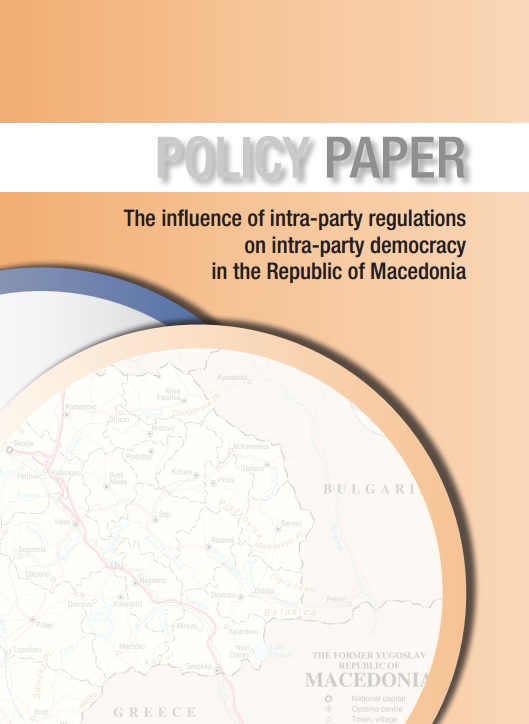This paper explores the influence of statutory rules and procedures on the possibilities for intra-party democracy in the six largest political parties in Macedonia, that have had the most MPs in between the national legislative elections from 2002 to 2014: VMRO-DPMNE, SDSM, NSDP, SP, DUI and DPA. The paper follows the methodology of Goran Cular (2004) and the dimensions of autonomy and inclusiveness to map the intra-party regulatory framework and to assess the state of intra-party democracy. Among all parties analyzed, the possibilities for autonomous decisions and actions by the local branches is quite limited. When it comes to inclusiveness, some of the parties support pluralism and have intra-party elections. Others, on the other hand, support centralization of power and tendencies of party presidentizalition, as the presidents of parties in Macedonia enjoy a significant concentration of power. The main results show that parties with a self-identified left orientation have statutory conditions which enable the highest level of intra-party democracy, followed by parties that appeal to ethnic Albanians. Parties with a self-identified right orientation have the lowest statutory conditions for intra-party democracy.
Authors:
- Viktor Dimovski, PhD,
- Dane Taleski, PhD
- Lura Pollozhani, M.Sc.
